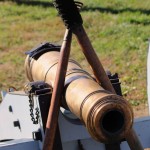Friends are generally surprised when I tell them I used to be a bird hunter. Using a .410 (small gauge) shotgun, I’d often limit o ut on doves before grown men using 12 gauge (larger pellets) shotguns.
ut on doves before grown men using 12 gauge (larger pellets) shotguns.
My parents were avid bird hunters. After they died, I gave up hunting.
Now, especially recently, I’m a word killer rather than a bird killer. I’ve been slaying herds of words in an effort to create a leaner, meaner, funnier, faster-paced novel. Woo hoo! When you’re cutting words, there’s no limit.
However, it does involve pain. You’d think I was at the wrong end of the pellet gun for the agony caused by killing off my precious babies.
So how can we make the slimming down process less painful and most valuable?
To use bird hunting as my metaphor (for at least as long as I can stretch it), begin with your heavy 12 gauge, getting rid of the big stuff.
- Can you eliminate entire chapters that are perhaps unnecessary?
- Make a note of a couple of things about each scene/chapter: who your point of view character is, what she or he needs to get out of the chapter (objective or goal), the obstacle to be overcome, and (almost always or your book threatens to be dull) why/how that objective is thwarted. I also make note of the character’s emotions and what surprising emotion I might slip in.
- Is the scene essential to the plot? Can you combine it with another, more interesting scene or chapter?
- Does it advance your story AND develop your character/s?
- If it is backstory, is it essential, repeat, essential information that cannot be sprinkled into other chapters (after the first 50 or so pages that should RARELY contain backstory)?
- Is it a dream? If so, give it a blast with both barrels. I hate dream scenes. (Okay, that’s a personal bias)
- Is it a traveling scene or a description of setting that is ONLY that? Even travel and setting description should reveal something about the plot and the characters living it.
 After you’ve used the big guns, use a smaller gauge or perhaps a rifle to focus on sentences and words that can be cut. Again, your standard is whether or not the phrase or the word moves the plot forward, creates the tension and emotional conflict that keeps the reader reading, or develops character.
After you’ve used the big guns, use a smaller gauge or perhaps a rifle to focus on sentences and words that can be cut. Again, your standard is whether or not the phrase or the word moves the plot forward, creates the tension and emotional conflict that keeps the reader reading, or develops character.
Some easy words that you can pop off with a pea gun (or a Word search): very, much, almost, just, a bit, somewhat, sort of, probably, possibly.
Wordslaying works best once you’ve gained a little distance from them. Wait for a second or third draft before you aim to kill. By that time you may be less attached to each gem.
My best trick in convincing myself to cut unnecessary scenes is to save them in a file of cut stuff that I may use in another novel or be able to rework into a short story. Some people call that file, the Dead File or the Morgue. Recently, I’ve named it Basura (Spanish for trash)
Reality is, I likely won’t use these words again, but it sure makes the act of pulling the trigger easier. And saving them helps, too, in case it’s just one of those days when I think NOTHING works and I should use an Uzi on the whole dang thing. When reality and straight thinking return, I merely copy and paste them back in.
Another trick that helps me eliminate useless scenes, pages, words, is to work with a critique partner who can gently advise me that I’ve already established that my protagonist is nervous or jealous or whatever.
Try becoming your reader: which part would you skip? Cut it. Which part reveals the author’s brilliance with language (“Oh, what a lovely choice of words.”) instead of simply moving the story ahead?
Cut it.
I’d love to know your ideas for killing your precious words. And I’d also love to hear your opinions of dream scenes, and of those who hate them.